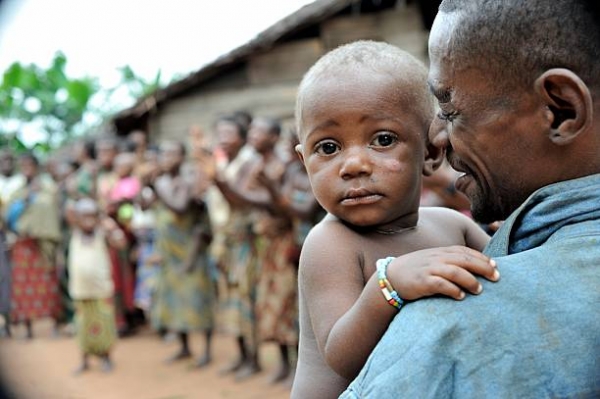In December 2020, the conflict in the Central African Republic (CAR) flared up again, making the situation unsafe for many people who were forced to flee their homes. The stories of displaced people from CAR share experiences of suffering, fear, and trauma. In addition to the risk to the physical well-being of these people, the invisible wound of mental health issues threatens their overall condition and the International Committee of the Red Cross (ICRC) is trying to create a network of psychological support for internally displaced people of CAR, particularly children.
In addition to the distress created by leaving their home environment, children in CAR often suffer from trauma caused by witnessing violence or by the loss of one or more family members. Parents often resort to religious practices, such as consulting a shaman, in order to help their children who suffer from sleep problems or psychological trauma. In the country, psychological medical support is practically non-existent, hence the Red Cross is setting up a psychological support system aimed at respecting and thereby accosting all the religious practices of the children's families.
Since 2014, many parents have approached ICRC mental health specialists in the Kaga-Bandoro region to work alongside their religious practices. The Red Cross always involves parents in the children’s therapy, who contribute to assisting in the recovery process and stay informed about their children's progress. The results so far are positive: on average, therapy lasts three months and more than 550 children in the three Kaga-Bandoro IDP camps underwent therapy in 2020. The prospects lead the Red Cross to hope that the Central African government will be able to start providing adequate mental health services in the near future, possibly under conditions of stability and peace.
To learn more, please read:
https://www.icrc.org/en/document/it-time-to-end-violence-in-central-african-republic
https://www.icrc.org/en/document/central-african-republic-here-we-also-treat-invisible-wounds
Author: Carla Pintor; Editor: Shrabya Ghimire






